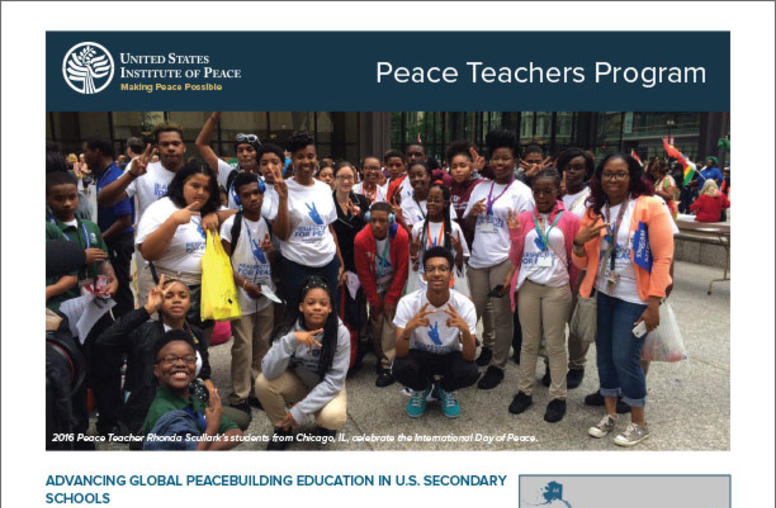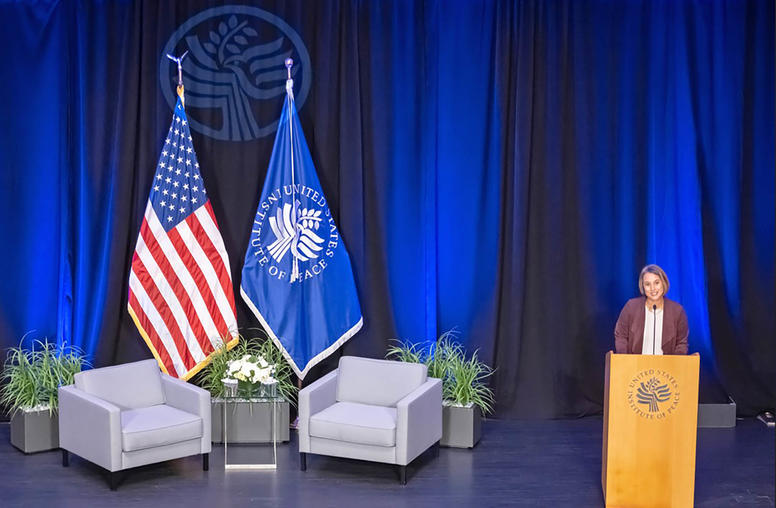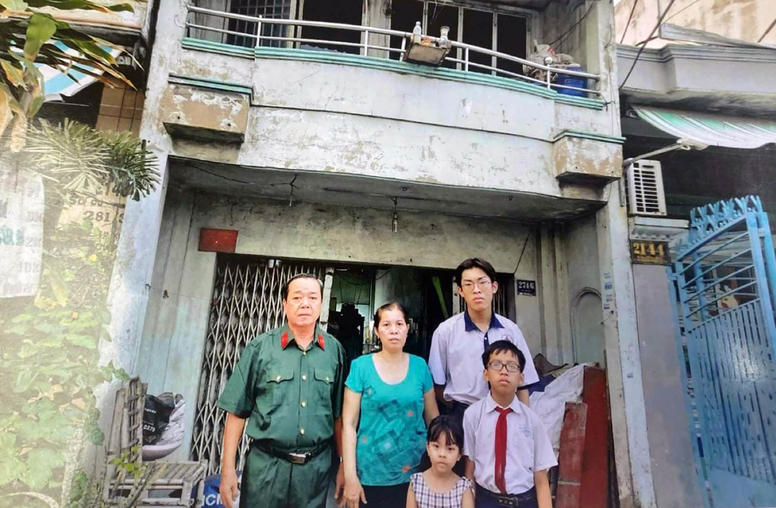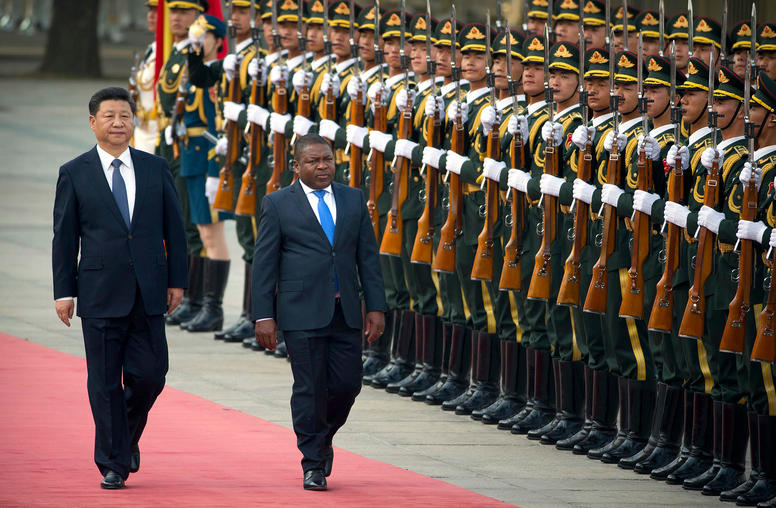Peacebuilding 2.0: Managing Complexity and Working Across Silos
On May 11, USIP hosted a series of discussions ranging from managing conflict in complex environments to lessons learned from USIP-funded projects. The sessions were part of the 2012 Alliance for Peacebuilding's Annual Conference which focused on new models for peacebuilding that works across disciplines in chaotic, fragile environments.
Read the event coverage,
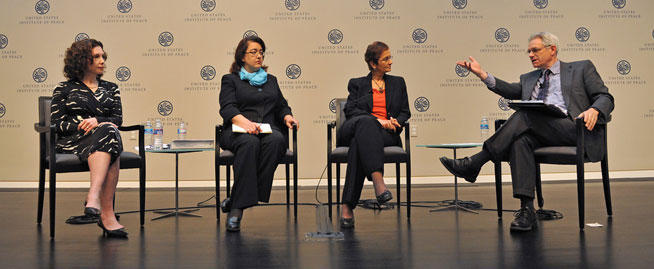
Peace as a concept is nearly universal in its appeal. Yet, despite the resources dedicated to its pursuit, stable peace remains elusive. There are complex and uncontrollable reasons for violent conflict, but the very system in which we operate contributes to the failure of reaching sustainable peace. Complex conflicts require solutions that are holistic, non-linear, and cumulative, rather than individual and disconnected. Peace is not possible if we continue to operate in a series of uncoordinated interventions.
Instead, a systematic approach to peace requires the intentional linking of peacebuilding programs with efforts in democracy-building, human rights, health, education, development, and private sector initiatives. A wide range of actors, from development specialists to educators to national security experts, is increasingly aware of the need to build more holistic, non-linear, and synergistic, whole-of-community approaches, and is seeking to connect the silos.
The discussions ranged from managing conflict in complex environments to lessons learned from USIP-funded projects. These special sessions, hosted at the United States Institute of Peace, were part of the 2012 Alliance for Peacebuilding's Annual Conference. The Annual Conference focused on new models for peacebuilding that works across disciplines in chaotic, fragile environments.
Agenda
9:00 am | Identifying the Hallmarks of 21st Century Conflict and How to Manage Conflict in Complex, Chaotic, and Fragile Environments
- Ambassador Rick Barton, Keynote Address
Assistant Secretary of State for Conflict and Stabilization Operations - Robert Ricigliano, Introduction
Board Chair, Alliance for Peacebuilding - Richard Solomon
President, U.S. Institute of Peace - Melanie Greenberg
President and CEO, Alliance for Peacebuilding - Pamela Aall
Provost, Academy for International Conflict Management and Peacebuilding, U.S. Institute of Peace
10:00 am | Results of the USIP-funded Peacebuilding Mapping Project
- Elena McCollim
Joan B. Kroc School of Peace Studies, University of San Diego - Necla Tschirgi
Joan B. Kroc School of Peace Studies, University of San Diego - Jeffrey Helsing, Discussant
Dean of Curriculum, Academy for International Conflict Management and Peacebuilding, U.S. Institute of Peace
11:20 am | How Other Fields Manage Complexity -- And What Peacebuilding Can Learn From Them
- Bernard Amadei
Founder, Engineers without Borders - Simon Twigger
Department of Physiology, University of Wisconsin-Milwaukee - Daniel Chiu
Deputy Assistant Secretary of Defense for Strategy, Office of the Secretary of Defense - Timothy Ehlinger
Department of Biology, University of Wisconsin-Milwaukee - Sheldon Himelfarb, Moderator
Director, Center of Innovation: Science, Technology and Peacebuilding,
U.S. Institute of Peace
1:30 pm | Holistic Community-Building in Northern Uganda, sponsored by the Center for Global Health and Peacebuilding
- Dr. Thom Feroah
Director, Center for Global Health and Peacebuilding - Victor Ochen
Archbishop Tutu Leadership Fellowship, Oxford University; Fellow, Center for Global Health and Peacebuilding
Photo Slideshow
Explore Further
- Watch the video of Ambassador Rick Barton's Keynote Address on C-SPAN.
- Read the News Feature about the event.
